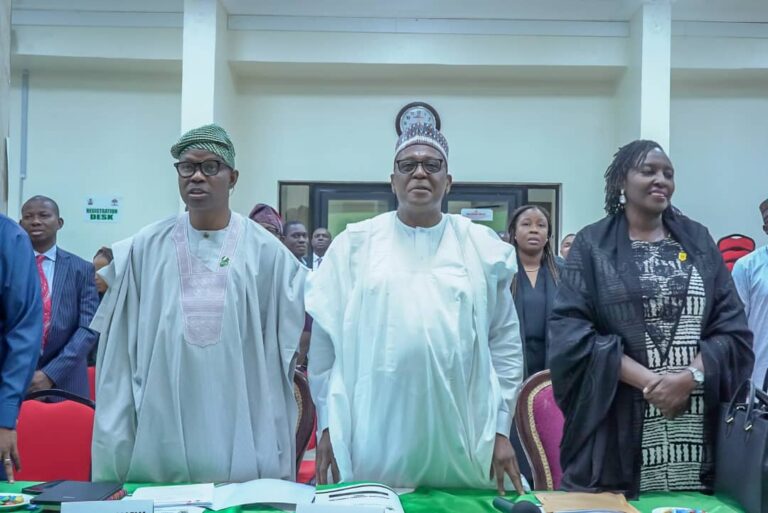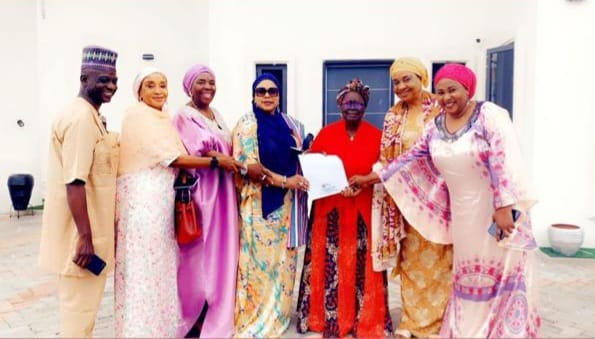
By Fatima Saka
Stakeholders in the banking and insurance sectors during a two-day public hearing have expressed concerns perspectives on the bill aiming for the amendment of the Nigeria Deposit Insurance Corporation (NDIC) Act, 2023.
The bill, put forth by the Chairman of the Senate Committee on Banking, Insurance, and other Financial Institutions, Senator Adetokunbo Abiru, seeks to bolster the Corporation’s effectiveness, independence, and autonomy.
It suggests modifications to sections 2, 3, and 4 of the principal Act by replacing the term “collaboration” with “concurrence.”
During the public hearing overseen by Senator Abiru’s committee, stakeholders voiced differing opinions both in favor and against certain provisions of the proposed legislation.
The most contentious aspect of the bill, which received support from some stakeholders while being opposed by others, is the elimination of the “Concurrence” role for the Central Bank of Nigeria (CBN) in favor of a more “collaborative” role. This change aims to grant the NDIC greater independence in making decisions related to its policy objectives.
The Managing Director of NDIC, Bello Hassan, former Chairman of the NDIC Board, Mrs. Ronke Sokefun, and the Bank Directors Association of Nigeria supported this provision, while the Central Bank of Nigeria expressed opposition.
In his submission, the NDIC Director stated that this provision would fortify the NDIC.
Likewise, Mrs. Sokefun endorsed the provision, emphasizing that it would restore the traditional role of the NDIC that had been encroached upon by the CBN.
Chairman of the Bank Directors Association of Nigeria, Mustafa Chike-Obi, also expressed support for the provision, stating that the proposed removal of the CBN concurrence requirement in Section 32 was a positive development.
However, the Central Bank of Nigeria, represented by its acting director of financial policy and regulation, Mr. John Onoja, argued that “Collaboration” implied that the NDIC would make decisions independently without involving the CBN.
The Financial Services Regulation Coordinating Committee (FSRCC) opposed the amendment to Section 16, which aimed to increase the NDIC’s capital base from N50 billion to N500 billion, solely subscribed and held by the federal government.
They argued that this increase would render the additional capital redundant as it would not yield the necessary return on investment.
The Legal Director at the Securities and Exchange Commission (SEC), Nestok Ikeagu, objected to the amendment removing the SEC Director-General from the NDIC board. He stressed that the SEC’s role in investor protection justified its position on the board, and removing it would impede interagency collaboration.
In his concluding remarks, Senator Abiru assured that the committee would carefully consider all expressed views to formulate legislation that is widely accepted.



